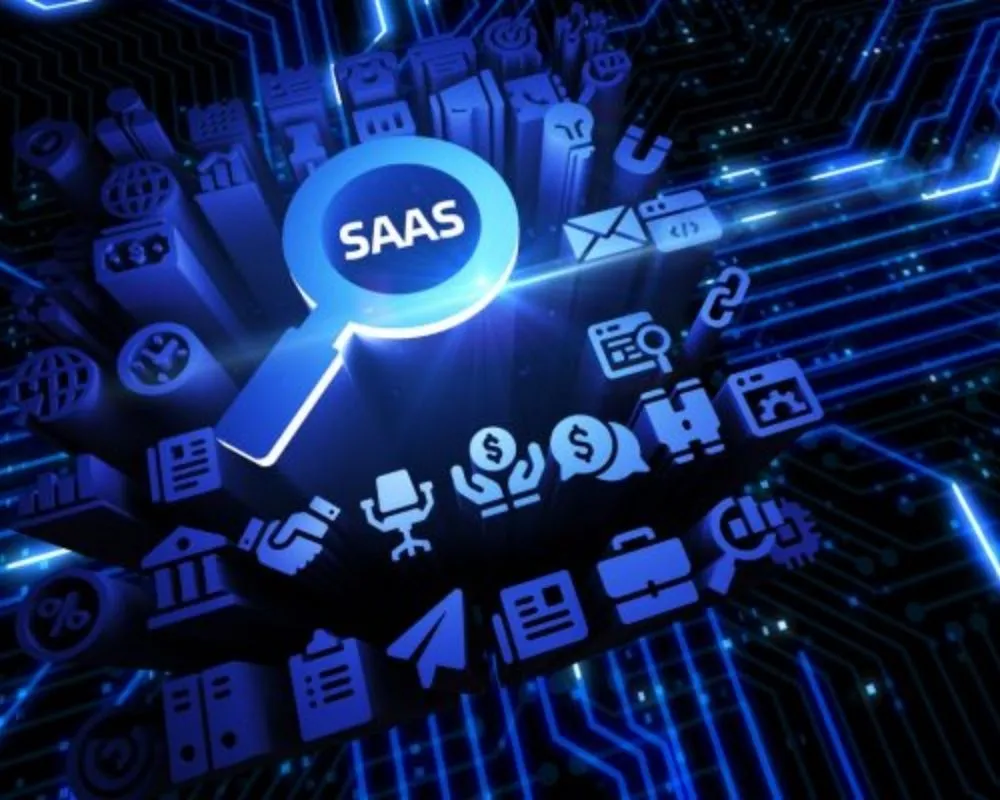As businesses increasingly move toward digital-first models, SaaS (Software as a Service) has emerged as a popular choice thanks to its flexibility, cost-efficiency, and scalability. However, selecting the right SaaS provider is far from simple. This article outlines the most important evaluation criteria and highlights several trusted providers—including BAP Software, a reliable partner in digital transformation.
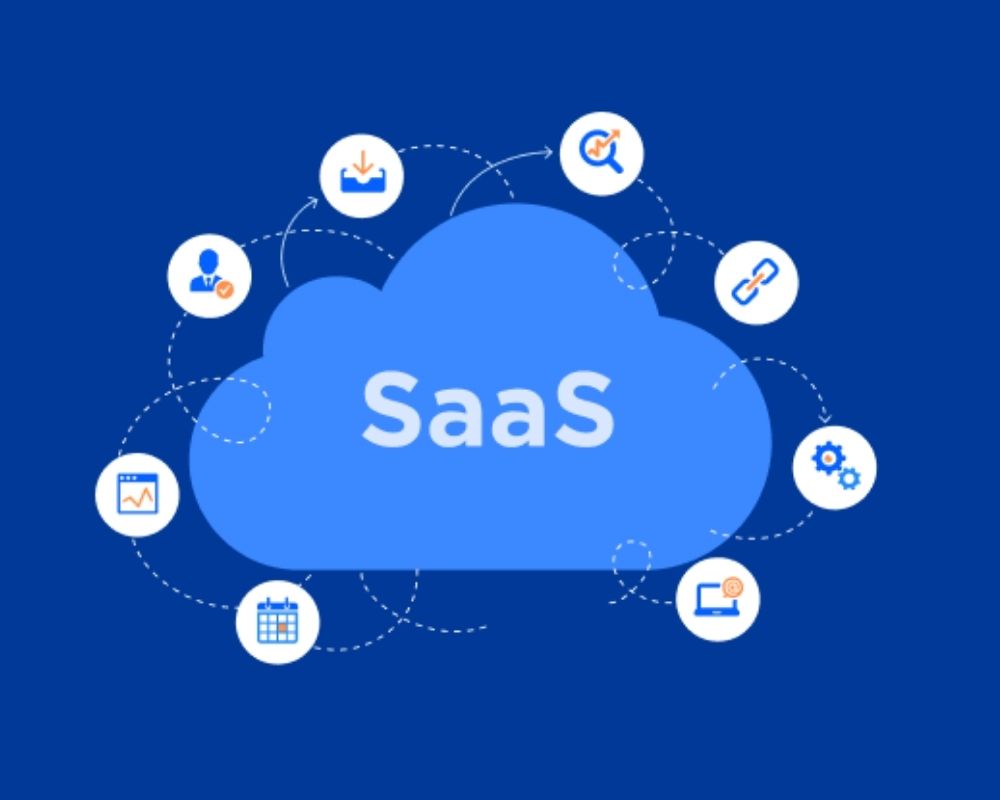
Criteria for evaluating SaaS providers. Source: 500apps
I. What is SaaS and Why Do Businesses Need It?
1. What is SaaS?
SaaS (Software as a Service) is a cloud-based software delivery model where users access applications via the internet without the need to install or manage complex infrastructure.
Instead of purchasing software licenses and deploying them on-premise, businesses simply subscribe on a monthly or annual basis—similar to how we use Gmail, Google Drive, or Zoom.
2. Key Advantages of SaaS
Adopting SaaS brings multiple benefits, especially in the era of digital transformation:
No infrastructure investment: No need for dedicated servers or IT teams to maintain systems.
Automatic updates: Always run on the latest version without manual intervention.
Scalable: Easily upgrade plans as user count or data grows.
Cost-effective: Pay only for what you use, reducing IT budgets compared to in-house development.
Accessible anywhere: Work remotely from any internet-enabled device.
3. Common SaaS Applications Today
Some widely adopted SaaS solutions include:
| Business Function | Popular Applications |
|---|---|
| Customer Relationship Management (CRM) | Salesforce, HubSpot CRM |
| Project & Team Management | Trello, Asana, ClickUp |
| Accounting & Finance | Xero, QuickBooks Online |
| Marketing Automation | Mailchimp, ActiveCampaign |
| E-learning & Training | TalentLMS, Moodle Cloud |
4. Why is SaaS the Future?
According to Gartner, global spending on SaaS is projected to surpass $232 billion by 2025, reflecting its rapid growth.
SaaS is not only ideal for startups seeking agile solutions but also a strategic choice for large enterprises aiming to cut costs, boost productivity, and integrate seamlessly with existing systems.
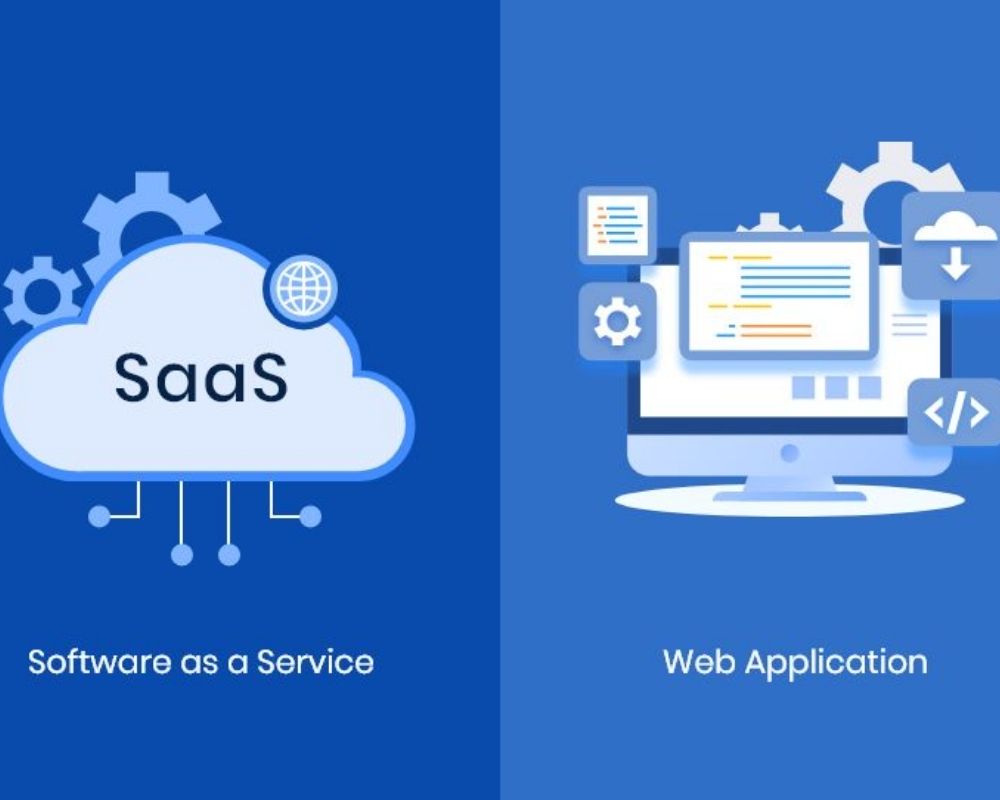
What is SaaS? Why do businesses need SaaS. Source: Finoit
II. Key Criteria for Evaluating a SaaS Provider
Not all SaaS platforms are created equal. The right choice directly impacts data security, system efficiency, and long-term growth. Here are the essential criteria to consider:
1. Scalability and Flexibility
Can the platform handle growth in users, data, and features?
Check for seamless scaling without downtime and maximum user capacity.
2. Data Security and Compliance
Must meet global standards such as ISO/IEC 27001, SOC 2, GDPR, or HIPAA (for healthcare).
Review privacy policies and data access rights carefully.
3. Integration Capabilities
Should connect with your existing CRM, ERP, accounting tools, and more.
Look for APIs, webhooks, and integrations with platforms like SAP, Salesforce, HubSpot.
4. User Experience and Interface
A clear UX ensures adoption across teams.
Look for intuitive onboarding, documentation, and user-friendly design.
5. Customization Options
Ability to configure workflows, reports, or forms to match industry-specific processes.
Essential for businesses that want to avoid rigid, one-size-fits-all solutions.
6. Support and SLA (Service Level Agreement)
Reliable support (24/7 or region-specific time zones).
Clear SLA terms: response times, maintenance schedules, and data backup policies.
7. Transparent Pricing Models
Compare setup fees, maintenance, support, and expansion costs.
Look for flexible pricing (per user, per feature, or per usage volume).
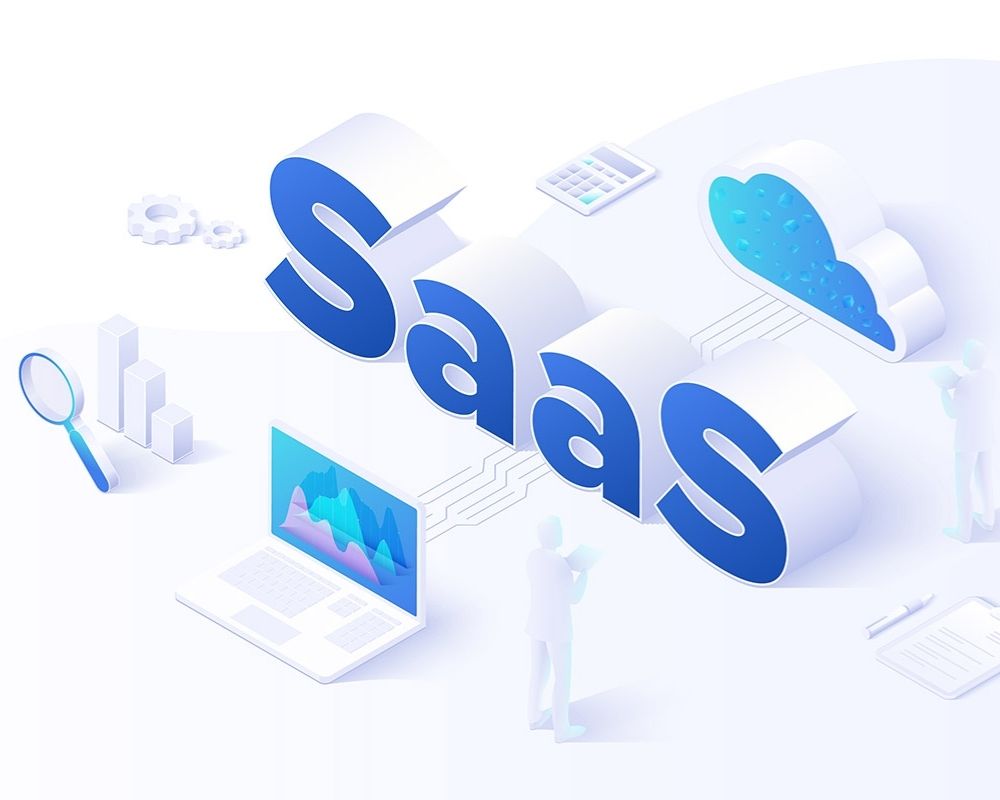
Top 7 criteria for evaluating SaaS enterprises. Source: SGS
III. Leading SaaS Providers in Vietnam and Globally
1. Salesforce (USA)
Website: salesforce.com
Highlights:
Market leader in CRM SaaS.
Built-in AI (Salesforce Einstein) for predictive analytics and revenue forecasting.
AppExchange marketplace with thousands of third-party add-ons.
2. Microsoft Dynamics 365 (USA)
Website: dynamics.microsoft.com
Combines ERP + CRM in one cloud-based suite.
Strengths:
Seamless integration with Microsoft ecosystem (Office, Teams, Power BI).
Power Platform (Power Apps, Power Automate) enables workflow automation.
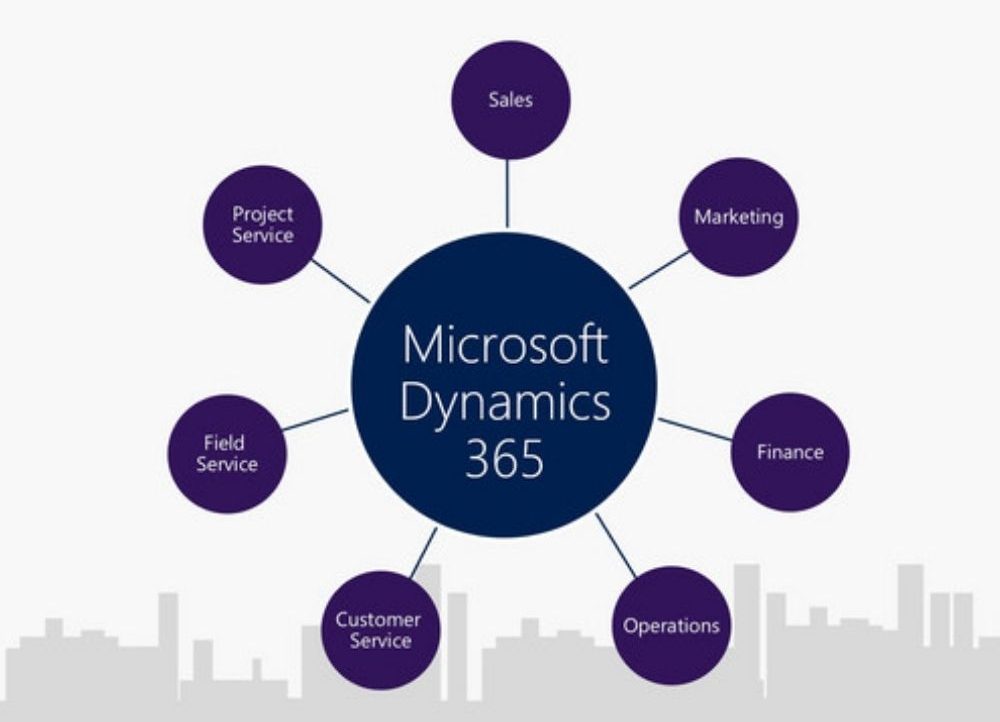
Dynamics 365 – A SaaS solution suite by Microsoft. Source: Vinsep
3. Oracle NetSuite (USA)
Website: netsuite.com
Trusted by 32,000+ global businesses.
Strengths:
Comprehensive ERP (finance, inventory, order management).
Multi-language, multi-currency, IFRS compliance.
Highly customizable workflows.
4. BAP Software (Vietnam – Japan)

BAP Software – A comprehensive SaaS solution provider in Vietnam.
Website: bap-software.net
Specializes in custom SaaS solutions integrated with AI.
Key Offerings:
ERP Systems: Finance, HR, sales, and warehouse management.
AI-powered CRM: Customer data analytics, marketing recommendations, sales forecasting.
LMS (Learning Management System): Personalized learning via Generative AI.
MES (Manufacturing Execution System): IoT + AI Vision for real-time production monitoring.
Competitive Edge:
Agile + DevOps delivery for faster rollouts.
Deep customization beyond packaged products.
Proven track record with clients in Japan, USA, and Singapore.
5. Zoho (India)
Website: zoho.com
Offers 45+ SaaS apps for SMEs.
Known for affordability and simplicity.
Key products: Zoho CRM, Zoho Books, Zoho Projects.
6. Base.vn (Vietnam)
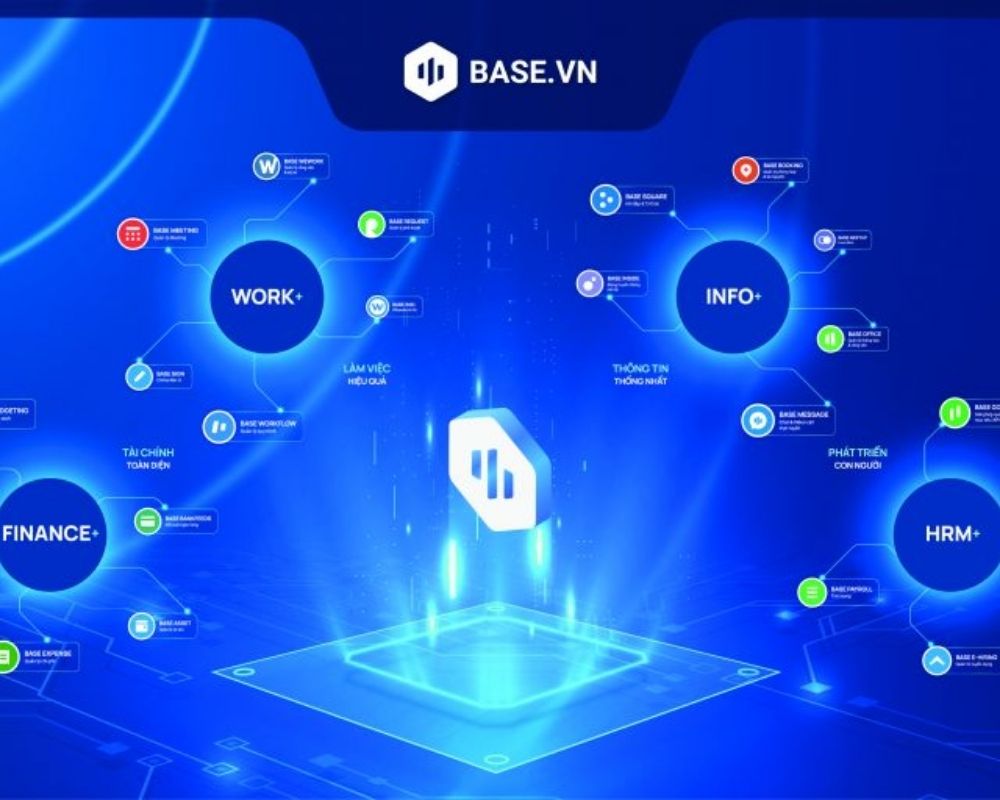
Base VN – A tech startup specializing in SaaS solutions for internal enterprise management in Vietnam. Source: Base
Website: base.vn
A rising Vietnamese SaaS startup focusing on internal business operations.
Core solutions: Work management (Base Wework), HRM, Workflow automation.
Strengths: Localized interface, fast support, and quick deployment.
Conclusion
Choosing a SaaS provider isn’t just about selecting software—it’s about choosing a long-term partner for digital transformation.
Each solution has its own strengths, and the right fit depends on your company’s size, industry, budget, and customization needs.
If your business requires tailored processes, legacy system integration, or AI-driven personalization, consider working with custom SaaS providers like BAP Software. With their ability to deliver “made-to-measure” solutions, you won’t be limited by packaged products, ensuring alignment with your unique business strategy.
Contact BAP Software today to explore the SaaS solution best suited to your growth journey.










